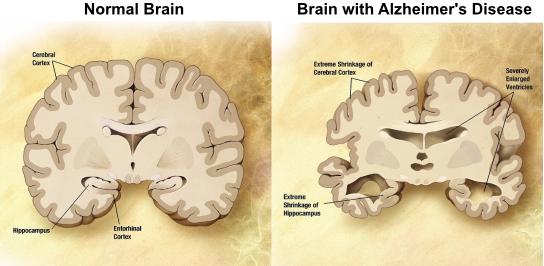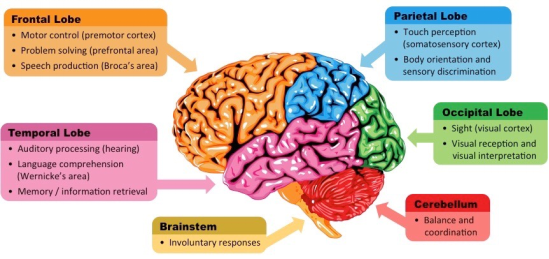
Title: How Reading Enriches Mind, Body & Life in Midlife and Beyond
Speaker: Ms Lee Li Li, Clinical Psychologist
Date: 20.05.2025 (Tuesday)
For many older adults, the topic of “reading” often stirs up complex emotions. Some say, “I can’t read,” or “I only studied up to primary school.” Others admit, “Reading scares me,” or “It’s useless—I’m still not successful in life.”
To many seniors, reading can feel like a distant, difficult task. They may question, “What’s the point? What can reading really do for me at this stage of life?”
In truth, reading—whether it’s a book, article, newspaper, or even an in-depth online feature—can bring unexpected emotional and cognitive benefits. For instance, after reading recent news stories about a mother elephant and her baby, many readers were moved to reflect, saying things like, “I want to cherish the people around me more.” This kind of emotional resonance is a powerful reminder of the insights and reflections that reading can spark.
When reading touches the heart and elevates the mind, it becomes more than a habit—it becomes a life-enriching experience.
1. Why Should We Read?
Reading is not just about acquiring knowledge or becoming smarter. Its true value lies in how it nurtures our thinking and emotions. By understanding other people’s experiences and exploring different life stories, we grow emotionally and spiritually.
 Did you know that our brains are most active between the ages of 25 and 30? During this time, about 80 billion neurons are firing at their peak. But after 30, brain activity gradually declines. From ages 30 to 50, neuron activity drops by about 0.2–0.3% per year. After 60, the decline speeds up to around 0.5% annually.
Did you know that our brains are most active between the ages of 25 and 30? During this time, about 80 billion neurons are firing at their peak. But after 30, brain activity gradually declines. From ages 30 to 50, neuron activity drops by about 0.2–0.3% per year. After 60, the decline speeds up to around 0.5% annually.
If we fail to actively stimulate the brain—by spending too much time watching dramas, eating mindlessly, or oversleeping—this decline can accelerate. One of the warning signs of brain aging is declining memory and attention. Occasional forgetfulness is normal, but consistent memory loss deserves attention, as it may signal neuron degeneration.
Regular exercise is important, but reading is another powerful way to activate the brain and slow this decline. It stimulates brain activity and serves as a daily mental workout, helping to keep the mind sharp.
While physical activity mainly stimulates motor and sensory areas of the brain, and socialising engages our language centres, reading uniquely activates regions responsible for higher-order thinking, like attention, emotion regulation, decision-making, and reasoning. For example, the prefrontal cortex and Wernicke’s area, though less frequently used, play critical roles in judgment and language comprehension.
A 2016 Yale University study found that just 30 minutes of reading a day can significantly improve both brain and body health. The more we read, the greater our chances of enjoying a longer, healthier life. Active brain cells mean clearer thinking, better self-control, and wiser decisions—whether that’s maintaining healthy eating habits or staying alert to daily risks.
Additionally, a 2013 study published in the journal Neurology by researchers at Rush University Medical Centre revealed that mentally stimulating activities like reading can help delay the onset of dementia. In other words, reading isn’t just food for thought—it’s protection for the brain.
2. Reading Builds Connection
Reading is also a powerful way to connect with others—emotionally, intellectually, and socially.
3. Reading Can Be Joyful
The gentle rhythm of reading—especially aloud—has a calming effect on the mind. A good article or story can:
Reading is not a chore—it can be a source of joy, peace, and inner comfort.
4. Reading Brings Mental and Emotional Freedom
A healthy brain supports a healthy heart. As stress and anxiety decrease, sleep naturally improves. Reading helps us unwind, gain insight, and find clarity when life feels overwhelming.
Through reading, confusion turns into understanding, and vague worries are replaced with clearer direction. Instead of dwelling on problems, opening a book might just offer the perspective and wisdom you need.
According to The Wall Street Journal, slow reading—the act of reading at a relaxed, thoughtful pace—helps reduce stress and improve brain health. Japanese neuroscientist Kenichiro Mogi also suggested in 2018 that reading widely allows the brain to "ferment like leaf mulch," forming a rich, fertile ground for deep thinking.
Speaker: Ms Lee Li Li, Clinical Psychologist
Date: 20.05.2025 (Tuesday)
For many older adults, the topic of “reading” often stirs up complex emotions. Some say, “I can’t read,” or “I only studied up to primary school.” Others admit, “Reading scares me,” or “It’s useless—I’m still not successful in life.”
To many seniors, reading can feel like a distant, difficult task. They may question, “What’s the point? What can reading really do for me at this stage of life?”
In truth, reading—whether it’s a book, article, newspaper, or even an in-depth online feature—can bring unexpected emotional and cognitive benefits. For instance, after reading recent news stories about a mother elephant and her baby, many readers were moved to reflect, saying things like, “I want to cherish the people around me more.” This kind of emotional resonance is a powerful reminder of the insights and reflections that reading can spark.
When reading touches the heart and elevates the mind, it becomes more than a habit—it becomes a life-enriching experience.
1. Why Should We Read?
Reading is not just about acquiring knowledge or becoming smarter. Its true value lies in how it nurtures our thinking and emotions. By understanding other people’s experiences and exploring different life stories, we grow emotionally and spiritually.
It Keeps the Brain Active
 Did you know that our brains are most active between the ages of 25 and 30? During this time, about 80 billion neurons are firing at their peak. But after 30, brain activity gradually declines. From ages 30 to 50, neuron activity drops by about 0.2–0.3% per year. After 60, the decline speeds up to around 0.5% annually.
Did you know that our brains are most active between the ages of 25 and 30? During this time, about 80 billion neurons are firing at their peak. But after 30, brain activity gradually declines. From ages 30 to 50, neuron activity drops by about 0.2–0.3% per year. After 60, the decline speeds up to around 0.5% annually.
If we fail to actively stimulate the brain—by spending too much time watching dramas, eating mindlessly, or oversleeping—this decline can accelerate. One of the warning signs of brain aging is declining memory and attention. Occasional forgetfulness is normal, but consistent memory loss deserves attention, as it may signal neuron degeneration.
Regular exercise is important, but reading is another powerful way to activate the brain and slow this decline. It stimulates brain activity and serves as a daily mental workout, helping to keep the mind sharp.

While physical activity mainly stimulates motor and sensory areas of the brain, and socialising engages our language centres, reading uniquely activates regions responsible for higher-order thinking, like attention, emotion regulation, decision-making, and reasoning. For example, the prefrontal cortex and Wernicke’s area, though less frequently used, play critical roles in judgment and language comprehension.
A 2016 Yale University study found that just 30 minutes of reading a day can significantly improve both brain and body health. The more we read, the greater our chances of enjoying a longer, healthier life. Active brain cells mean clearer thinking, better self-control, and wiser decisions—whether that’s maintaining healthy eating habits or staying alert to daily risks.
Additionally, a 2013 study published in the journal Neurology by researchers at Rush University Medical Centre revealed that mentally stimulating activities like reading can help delay the onset of dementia. In other words, reading isn’t just food for thought—it’s protection for the brain.
2. Reading Builds Connection
Reading is also a powerful way to connect with others—emotionally, intellectually, and socially.
- Solo Reading: Reading in a quiet space nurtures the soul. Later, the stories and insights can be shared with friends and family, enhancing connection and understanding.
- Listening to Books: For those who struggle with reading, technology or loved ones can help by reading aloud. The inspiration and reflections gained can still be shared, maintaining social connections.
- Reading Together: Shared reading experiences—where one person reads aloud and others listen and discuss—deepen comprehension and strengthen emotional bonds.
3. Reading Can Be Joyful
The gentle rhythm of reading—especially aloud—has a calming effect on the mind. A good article or story can:
- Expand your knowledge
- Spark fond memories from the past
- Stir empathy and help you feel others’ emotions
Reading is not a chore—it can be a source of joy, peace, and inner comfort.
4. Reading Brings Mental and Emotional Freedom
A healthy brain supports a healthy heart. As stress and anxiety decrease, sleep naturally improves. Reading helps us unwind, gain insight, and find clarity when life feels overwhelming.
Through reading, confusion turns into understanding, and vague worries are replaced with clearer direction. Instead of dwelling on problems, opening a book might just offer the perspective and wisdom you need.
According to The Wall Street Journal, slow reading—the act of reading at a relaxed, thoughtful pace—helps reduce stress and improve brain health. Japanese neuroscientist Kenichiro Mogi also suggested in 2018 that reading widely allows the brain to "ferment like leaf mulch," forming a rich, fertile ground for deep thinking.





